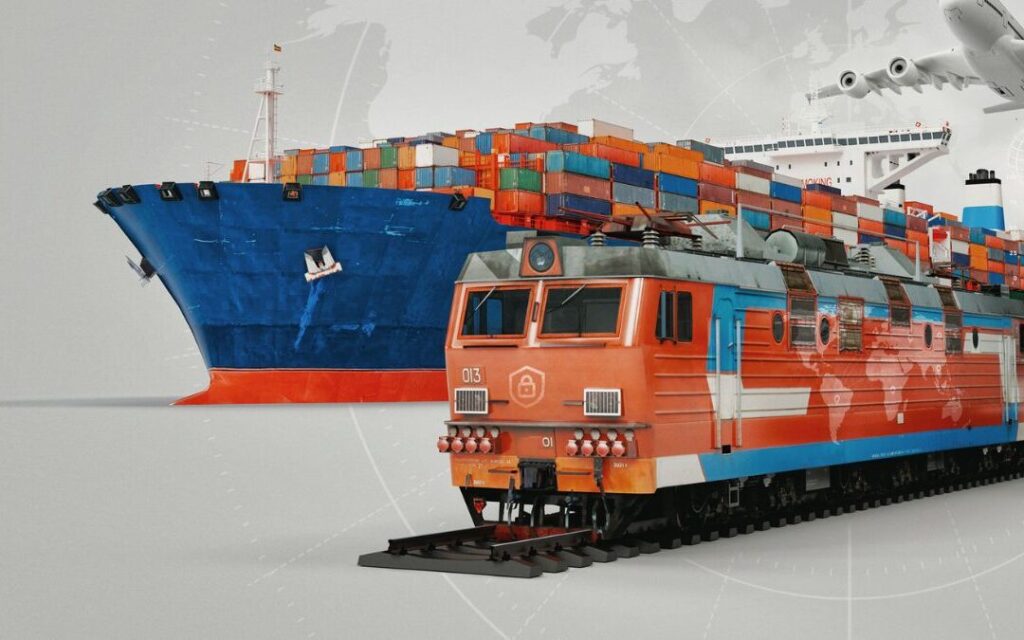- By TOP CHINA FREIGHT
- September 3, 2025
- Shipping
Table of Contents
Shipping from China to the UK has become a crucial part of global trade, yet many businesses struggle to understand the full range of shipping prices from China to UK. With fluctuating freight rates, customs duties, and transit times, companies often face unexpected costs and delays. This guide will provide a comprehensive overview of shipping options, pricing, and strategies to optimize your supply chain efficiently.

What are the main shipping options from China to UK?

| Shipping Method | Cost (per kg) | Transit Time | Pros | Cons |
|---|---|---|---|---|
| Sea Freight | $0.80–$3 | 25–40 days | Cheapest for large cargo | Slow delivery |
| Air Freight | $4–$8 | 3–7 days | Fast, reliable | Expensive, weight limits |
| Rail Freight | $1.50–$4 | 15–20 days | Balanced cost and speed | Limited destinations |
Choosing the right shipping method depends on urgency, budget, and cargo size.
How do transit times affect shipping prices from China to UK?
Transit time directly influences shipping costs. Faster deliveries typically incur higher fees, while slower shipments are more economical. For example, air freight rates are higher because airlines prioritize speed and reliability. In contrast, sea freight is cheaper but may face delays due to weather or port congestion. Rail freight provides a middle ground, often preferred for time-sensitive but heavy cargo. By planning shipments in advance and consolidating orders, businesses can reduce costs without sacrificing delivery reliability.
What factors determine shipping prices from China to UK?
Heavier and bulkier shipments cost more, especially for air freight.
Sea freight is generally cheapest, air freight most expensive, rail in between.
Fluctuating fuel prices can impact overall shipping costs.
Duties, VAT, and port handling charges vary by location and cargo type.
Peak seasons, such as before Christmas, can drive prices higher
Should I choose sea, air, or rail for my shipment?
The choice between sea, air, and rail depends on your priorities.
1.Sea Freight:
Best for low-cost, bulk shipments. Suitable for non-urgent items.
2.Air Freight:
Ideal for high-value, urgent shipments. Limited weight capacity.
3.Rail Freight:
Balanced choice for moderate cost and speed. Less congested than sea routes.
Pros and Cons of Freight Types
| Type | Pros | Cons | Best For |
|---|---|---|---|
| Sea Freight | Cost-effective, bulk cargo | Slow, delays possible | Furniture, electronics, clothing |
| Air Freight | Fast, reliable | Expensive, limited weight | Electronics, perishable goods |
| Rail Freight | Moderate cost, faster than sea | Fewer routes | Industrial goods, machinery |
How can customs affect shipping prices from China to UK?

Customs clearance is a critical step that can influence overall shipping prices. Import duties, VAT, and documentation requirements vary depending on cargo type and value. Failure to provide correct customs documents can lead to delays and extra fees. Businesses should prepare:
Customs Documents Checklist
| Document | Purpose | Required For |
|---|---|---|
| Commercial Invoice | Cargo value declaration | All shipments |
| Packing List | Cargo contents | All shipments |
| Bill of Lading / Airway Bill | Proof of shipment | Sea/Air freight |
| Import Declaration | Customs processing | All shipments |
| Certificate of Origin | Duty rates | Select goods |
Efficient customs planning ensures smoother delivery and avoids unexpected cost spikes.
Can packaging impact shipping prices from China to UK?
Absolutely. Proper packaging reduces damage risk and can lower costs. Oversized or heavy packaging increases dimensional weight, raising freight charges. Using standardized pallet sizes and eco-friendly materials can optimize space and reduce expenses. Moreover, bundling multiple small items into one shipment lowers handling fees and storage costs. Businesses should also consider protective packaging for fragile items.
How to estimate shipping prices from China to UK accurately?
Base cost per kg or container
Optional, but recommended for high-value items
VAT and import duties.
Port, warehouse, or delivery charges
Fuel, peak season, or remote area fees.
Container Pricing Example
| Container Type | Capacity | Sea Freight ($) | Air Freight ($) | Rail Freight ($) |
|---|---|---|---|---|
| 20ft | 28–30 CBM | 1,200–2,000 | 5,000–6,000 | 2,500–3,200 |
| 40ft | 58–60 CBM | 2,000–3,500 | 9,000–12,000 | 4,500–6,000 |
By analyzing these costs, businesses can forecast total transport china expenses accurately.
How do seasonal trends affect shipping prices from China to UK?
Shipping prices fluctuate seasonally due to supply and demand. For instance, Chinese New Year often increases rates because many factories close temporarily, limiting cargo availability. Similarly, pre-Christmas shipments see higher fees due to global demand. Planning shipments during off-peak months can reduce costs, avoid port congestion, and allow for more predictable transit schedules.
Case Analysis: Optimizing costs for an electronics shipment
A UK-based electronics retailer imports 500 units of smartphones from Shenzhen. By comparing shipping methods:
- Sea Freight: $1,500, 30 days transit.
- Air Freight: $6,500, 5 days transit.
- Rail Freight: $3,200, 18 days transit.
The retailer chose rail freight to balance cost and delivery speed. Proper documentation and packaging reduced customs delays, and consolidated shipments minimized handling fees. This approach saved 50% compared to air freight while ensuring timely stock replenishment
Conclusion
Understanding shipping prices from China to UK involves evaluating multiple factors, including freight method, customs, transit time, and packaging. Sea, air, and rail options each have unique advantages, and seasonal planning can reduce costs significantly. Efficient documentation and working with experienced freight forwarders ensures smooth deliveries, minimized expenses, and reliable supply chains.
Need a Shipping Quote?
If you want expert guidance and peace of mind, our team is ready to assist.
TJ China Freight offers tailored solutions to help businesses of all sizes ship more reliably from China.

FAQs
Q1:How can I track shipments from China to UK effectively?
Tracking shipments requires using the tracking number provided by your freight forwarder or carrier. Many forwarders offer online portals where you can monitor real-time status, including customs clearance, port handling, and delivery updates. Setting up notifications ensures you stay informed about delays or exceptions.
Q2:Are there ways to reduce import duties for UK shipments?
Yes. Utilizing preferential trade agreements, classifying goods under correct HS codes, and consolidating shipments can minimize duties. Consulting a customs broker helps ensure compliance while identifying duty-saving opportunities.
Q3:What insurance options are recommended for imports from China?
Cargo insurance is essential for high-value or fragile goods. Options include all-risk coverage, which protects against theft, loss, and damage, and total loss coverage, which covers only extreme incidents. Evaluating risk levels and shipment value helps determine the appropriate insurance.
Q4:How do I choose the right freight forwarder for my needs?
Look for forwarders with verified experience shipping to the UK, transparent pricing, strong customs expertise, and reliable customer service. Reading reviews, requesting references, and assessing their network of carriers ensures they can handle your cargo efficiently.
Q5:Are there size or weight restrictions I should be aware of?
Yes. Air freight has strict weight and volume limits, while sea and rail freight allow larger shipments but may impose container capacity limits. Planning cargo dimensions and weights carefully helps avoid surcharges or rejected shipments.
